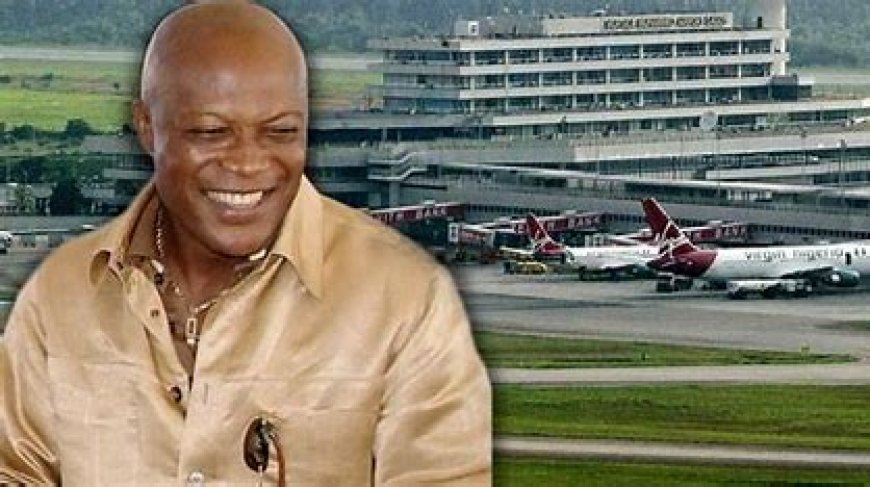The $242 Million Deception: The Story of Emmanuel Nwude's Infamous Fraud

Emmanuel Nwude, who perpetrated the largest fraud in Nigerian history by selling a non-existent airport to a Brazilian for $242 million between 1995 and 1998, is also linked to the rise of internet fraud, commonly known as 419, which Nigeria is often associated with. Before internet fraud became a global problem, Nwude executed one of the largest scams in history. His crime ranks as the third-largest banking fraud in the world, behind Nick Leeson's trading losses at Barings Bank and the looting of the Iraqi Central Bank by Qusay Hussein. How did he manage to pull off this enormous scam and convince Nelson Sakaguchi, a bank director, to part with such a large sum for an airport purchase?
Nwude, a former director at Union Bank of Nigeria, had access to privileged information and documents. He impersonated the then-governor of the Central Bank of Nigeria, Paul Ogwuma, and contacted Sakaguchi, offering him a lucrative deal about Nigeria's plan to build an airport in Abuja. Pretending to be Ogwuma, Nwude told Sakaguchi that he could earn a $10 million commission if the deal went through. Sakaguchi ended up paying $191 million in cash, with the remainder covered by outstanding interest. Nwude's accomplices included Emmanuel Ofolue, Nzeribe Okoli, Obum Osakwe, and Christian and Amaka Anajemba, with Christian later being assassinated.
The criminal group was able to convince Sakaguchi to part with the money, but in 1997, as Banco Santander of Spain sought to take over Banco Noroeste, a joint board meeting revealed that half of the Brazilian bank’s capital was held in the Cayman Islands, unmonitored. This raised suspicions, leading to an investigation in Brazil, Britain, Nigeria, Switzerland, and the U.S. Although the sale of the bank went ahead and the $242 million was paid, the bank ultimately collapsed in 2001. In 2002, President Olusegun Obasanjo helped establish the Economic and Financial Crimes Commission (EFCC), which took up Nwude's case as one of its first investigations. By 2004, Nwude and his gang were arraigned in an Abuja High Court on charges of "fraudulently seeking advance fees" and bribery. Despite pleading not guilty, they were warned not to bribe court officials.
In 2005, Amaka Anajemba confessed to assisting in the scam and was ordered to repay $25.5 million and sentenced to two and a half years in prison. Nwude also attempted to bribe Nuhu Ribadu, the EFCC chairman, with $75,000, but Ribadu refused, leading to additional charges of attempted bribery and kidnapping a prosecuting witness. After Sakaguchi’s testimony, Nwude pled guilty and was sentenced to five concurrent five-year terms and fined $10 million. He was released in 2006.




